Divorced Michigan couple fights over frozen embryo: She wants another baby. He doesn't.
Fighting over who gets the house in a divorce is one thing. But what about a frozen embryo?
In a complex and emotional legal dispute in Macomb County, science, religion and the rule of law are colliding as a divorced couple feud over who owns the rights to an embryo that was created during the marriage.
The embryo was originally one of three that was created using the wife's sister's eggs and the ex-husband's sperm. Two were implanted in the wife, who gave birth to fraternal twins.
The third embryo remains frozen.
Six years later, the fertilized egg, frozen in liquid nitrogen, has become part of a property dispute in a messy divorce between a woman who views the embryo as a "human life" and wants to have it implanted to bear another child and an ex-husband who is adamantly opposed to her plan. He already has four children with his ex-wife, he says, and doesn't want another, especially under the terms she has suggested.
No strings attached
To date, the judge overseeing the 2-year-old dispute has consistently sided with the father, 45-year-old David Markiewicz of Shelby Township, who has been awarded the embryo in part because his sperm helped create it, not his wife's egg.
Markiewicz wants to discard the embryo or donate it to science — a decision that weighs heavily on him given his Roman Catholic upbringing and anti-abortion stance.
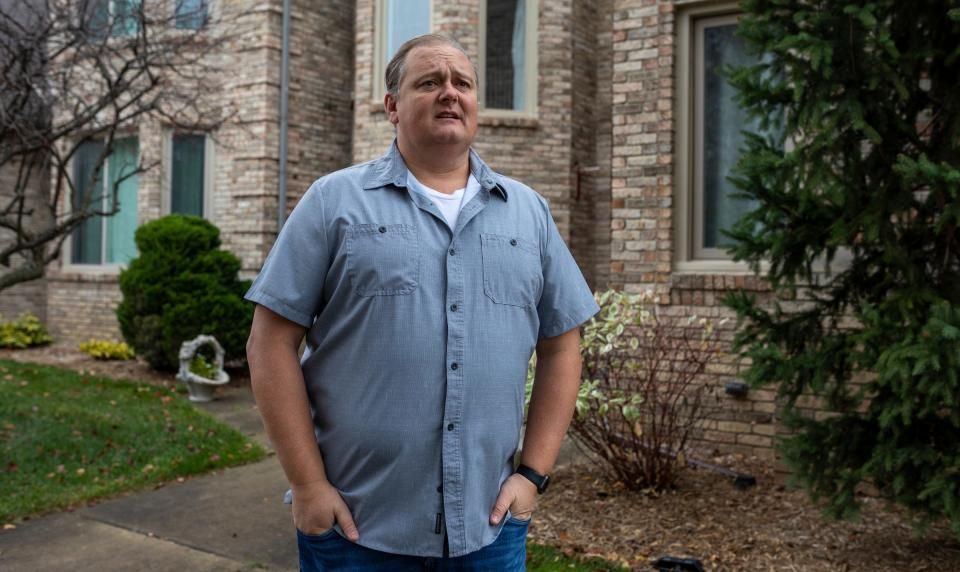
His ex-wife, also a Catholic, is seeking intervention from the Michigan Court of Appeals.
At 44, Sarah Markiewicz, a part-time physician assistant from Rochester Hills who specializes in hormone therapy, wants to have a fifth child — if possible. She wants the opportunity to give life to the embryo that was formed years ago, which, she maintains, was always part of the couple's embryo cryopreservation agreement.
Sarah Markiewicz insists that if her husband lets her have the embryo, there would be no strings attached: If she had a baby using the embryo, he would be under no financial or paternal obligation to raise the child — which she would agree to put in writing.
More:Inside Detroit's 24-hour child care: A fragile lifeline for working parents
More:Amoxicillin shortage in Michigan, US fueled by surge in pediatric RSV cases: What to know
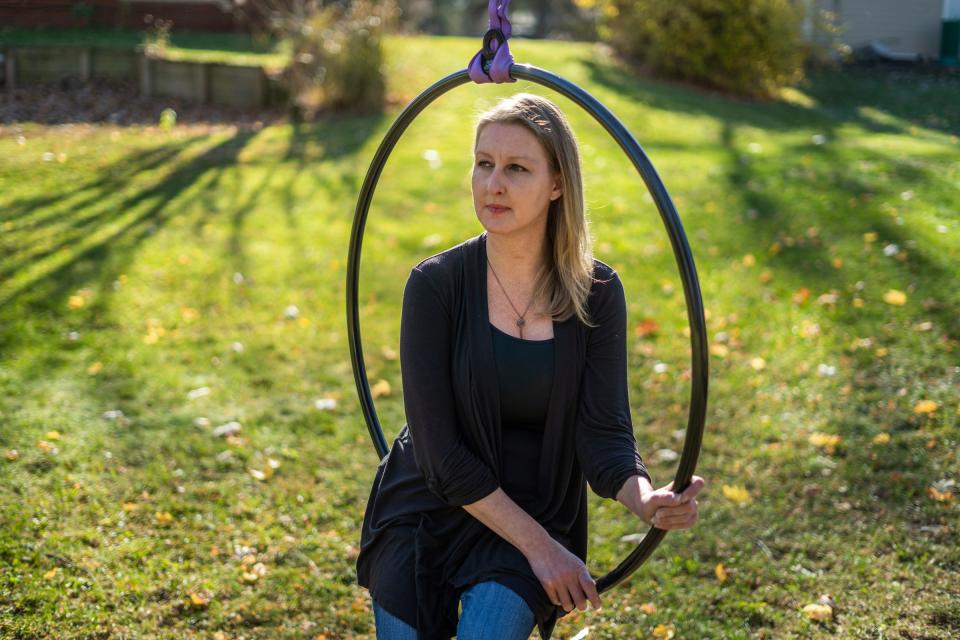
'Just looking to keep together the family'
"Sarah has said, 'Look I don’t want any money. I don’t want any support. I just want to have this child,'" her lawyer, Michael Balian, told the Free Press, stressing that the courts must treat this decision delicately, "especially when you have the potential for life."
For Sarah Markiewicz, this is her last opportunity to have a baby who is closely related to her genetically. But more than that, she said, it's about giving life to a child she always vowed to have, and reuniting her twins with the embryo that formed alongside them.
"I’m just looking to keep together the family that was made in the first place, and not feel like I’m losing part of it," Sarah Markiewicz said, noting that discarding the embryo is "not an option." She views it as abortion.
"If I’m willing to take all responsibility, then I don't understand why (the embryo) would be taken away," said Sarah Markiewicz, stressing: "There's a third life out there."
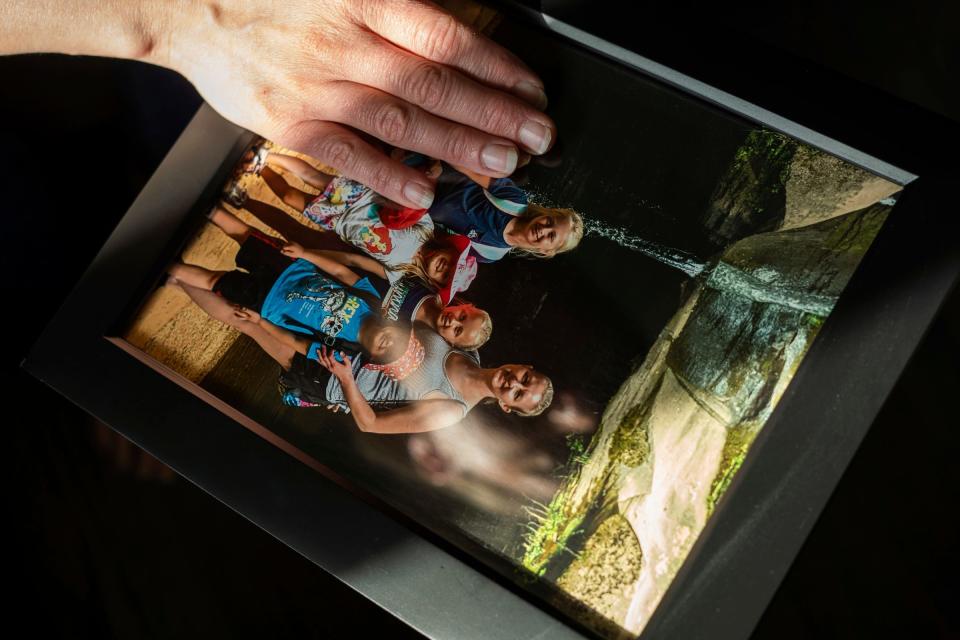
"My big concern right now are the four children that we have growing up with two parents who just can’t get along."
David Markiewicz
But David Markiewicz won't hear of it.
"It leaves me with the possibility of having a child out there that I don’t have access to," David Markiewicz said of his ex-wife's proposition. "Everyone says, 'You wouldn’t have any financial responsibility.' Forget all that noise. I’m not that guy. I’m financially responsible for my children now. Why wouldn’t I be for this one?"
Moreover, David Markiewicz said, he couldn't sit by and watch his child grow up without being involved. Again, he stressed, "I'm not that guy."
David Markiewicz doesn't want another child with his ex-wife, he says. And if she is intent on having another child, he suggested she get another egg and a sperm donor "and leave me out of it."
"My big concern right now are the four children that we have growing up with two parents who just can’t get along," David Markiewicz said. "And now you want to add another baby to that chaos? That’s insanity to me."
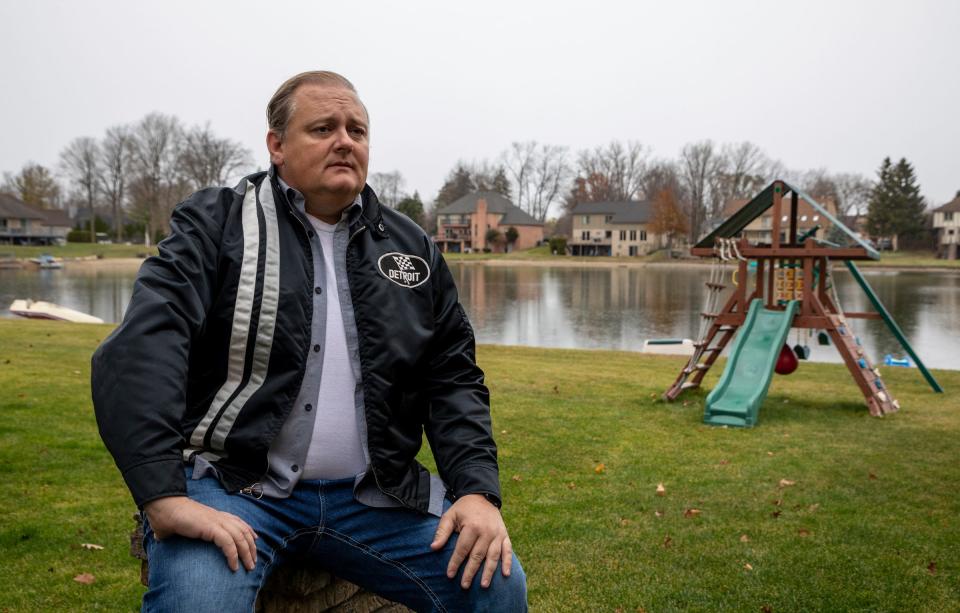
High school friends who dated in college
David and Sarah Markiewicz met in high school chemistry class. She went to Plymouth Salem. He went to Plymouth Canton. They started out as friends and then dated in college. In 2009, the couple married and set out to grow a family.
They had setbacks.
Sarah Markiewicz, who had a history of endometriosis, went through early menopause when she was in her early 30s.
"I was told that I may never have children. I completely remember that moment in my life," said Sarah Markiewicz, who recalled feeling powerless and defeated. "Every girl sees themselves getting married, having a career, children ... but if someone tells you medically, you just may not be able to do this, there’s nothing you can do about that."
Determined to grow a family, the couple opted to try in vitro fertilization using the wife's sister's eggs and David Markiewicz's sperm. The first two times failed. The third time worked.
The couple had a baby girl, who is now 10.
A sister's love
For Anna Bluj, Sarah Markiewicz's sister who donated her eggs, the legal feud over the embryo has been emotional.
This was her gift to her sister, a person who suffered a great deal of pain in trying to get pregnant, who longed to have children and went to great lengths to have them, Bluj, 37, told the Free Press.
Given all she's been through, Bluj said, she can't fathom why the courts and David Markiewicz won't let Sarah have the embryo. It's just as much her sister's as it is her ex-brother-in-law's, Bluj argues.
"Regardless of what the paperwork says, I gave it to her because she's my sister, and she needed it," Bluj said. "These are her genes as well, that’s why I donated ... that's also why it's very emotional as well, to both of us.
"It saddens me that he has the choice and she doesn’t, when in my mind, I gave it to her because she was the one who had the need — and she’s my sister," said Bluj, who supports her sister's desire to have a fifth child.
"Sarah is a loving mother. She's a super mom," Bluj said. "She does it all. And if she wants to have another child, she should have the ability to have another child."
'A miracle child — and a triplet still out there'
Six months after the birth of their first child, the Markiewiczes were met with a joyous and unexpected surprise.
Sarah Markiewicz was pregnant.
"That child is a miracle," she said of her now-9-year-old daughter.
Three years later, in summer 2015, the twins arrived after Sarah's sister went through an egg retrieval procedure to help the couple have another child.
Three embryos grew. Though all were declared viable, Sarah Markiewicz chose not to have them all implanted to avoid a selection reduction process. That's when embryos are sacrificed in order to maximize the chances of survival for the remaining embryos, or to allow the mother to choose how many babies she wants to deliver.
Sarah Markiewicz didn't want to go through that, so she opted to have the two embryos with the higher "grades" implanted, and to freeze the third to be implanted sometime later.
The twins — one boy, one girl — are now 6 years old.
"They were all in that lab together," Sarah Markiewicz said of her twins and the still-frozen embryo. "In my head, that makes me feel ... that triplet is still left there."
More:One last magical day with my dad, a huge sports fan who planned everything, even in death
More:Military veteran caregivers across Michigan finally getting praise for tireless work
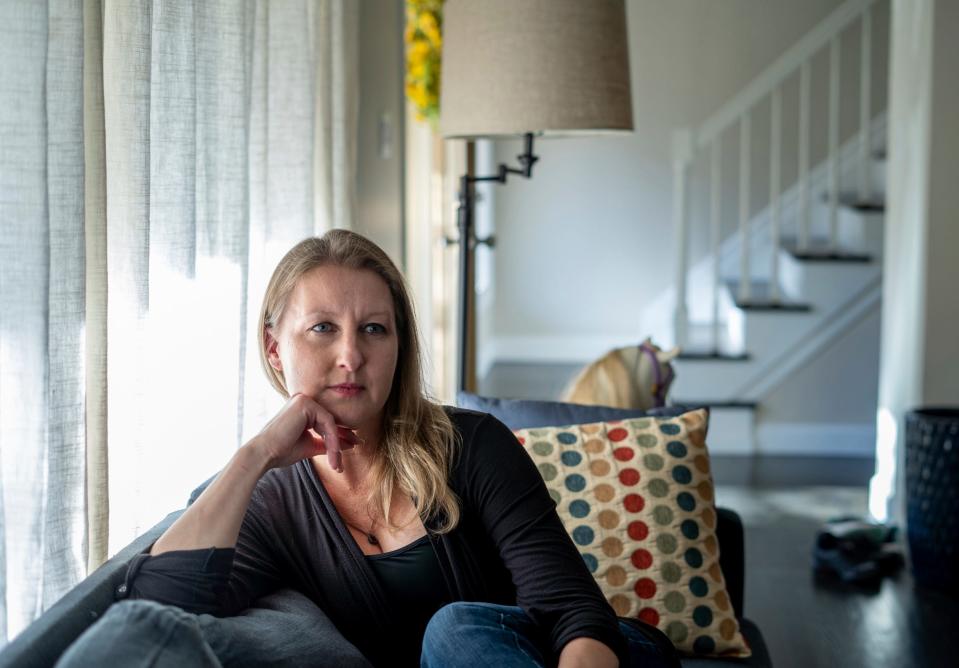
A family fractured
In 2019, after 10 years of marriage, Sarah Markiewicz filed for divorce, citing "a breakdown in (the) marital relationship beyond the point of repair."
David Markiewicz was devastated. He said he didn't want the divorce. He had married what he described as "the love of my life for many years" and believes his wife left him because he worked too much. As the main provider for the family, his $200,000-a-year job as a nurse anesthetist kept him away from home a lot.
"It's a loss. It's a death," he said of the divorce. "I’m better now. I just want what’s best for my kids. I’m not looking to have another child with her."
The 2-year-old legal battle over the embryo has been draining for him, and he said he's especially irked by his ex-wife's assertion that she wants the embryo to keep her family together.
"I am frustrated to say the least," David Markiewicz said.
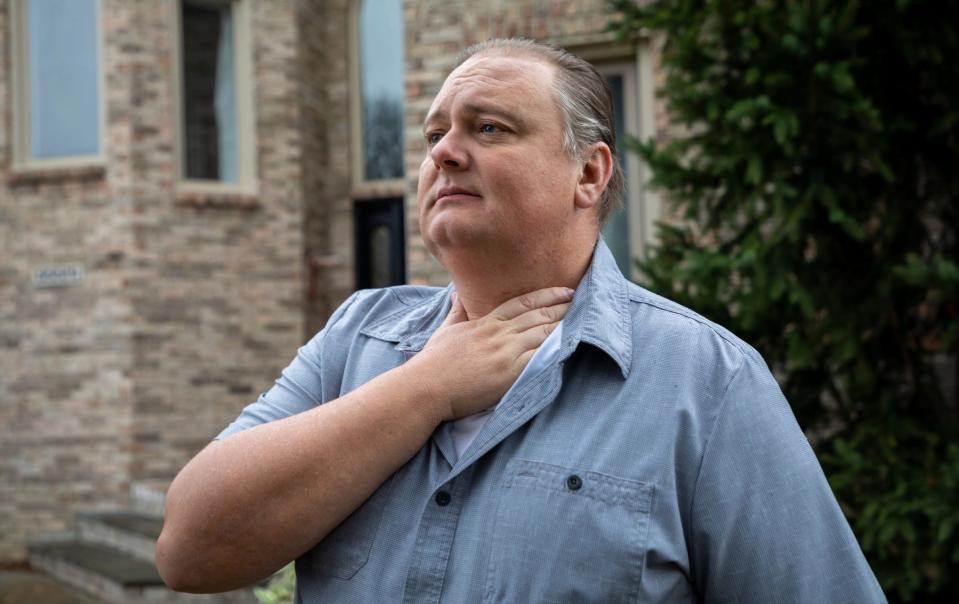
Judge: 'This isn't science fiction'
The issue of the embryo surfaced in September 2020, as the couple was about to finalize the divorce.
A lawyer for the wife noted an outstanding property issue.
"Judge, there is an embryo that the parties have that my client would like to keep and Mr. Markiewicz would like to have destroyed," attorney Paul Addis said at the court proceeding.
The judge wanted to know who paid for the $15,000 in vitro process. Both spouses, the lawyers responded.
As a result, the judge declared the embryo to be marital property, saying, "It's not science fiction, but there's an embryo sitting there that cannot live on its own."
The judge also awarded the embryo to the husband, concluding it wouldn't be fair to force him into fathering a child he would have nothing to do with — whether he agreed to it or not.
"I wouldn't want that knowledge myself around. I'd feel horrible about myself," Macomb County Circuit Judge Matthew Switalski said in 2020. "First, I would be angry that I had no say in it ... and then I'd feel awful about myself, and who knows what would be said about me going forward?"
After deciding the embryo issue, the judge declared the divorce final.
But the embryo feud was far from over.
'Embryo is more than human tissue'
Two months after the husband was awarded the embryo, Sarah Markiewicz asked the judge for reconsideration. She believes that the embryo should not be considered property, and asked permission to argue that point. The judge denied her request, so she appealed to the Michigan Court of Appeals.
On March 24, 2022, the appeals court reversed the judge's ruling and remanded the case for further consideration, concluding the embryo was marital property, but deserved "special" consideration and protection given the nature of the property.
"Sarah contends that an additional factor the court should have considered was the unique nature of a frozen human embryo," the appeals court wrote in its opinion. "Although there are no cases in Michigan directly addressing the nature of a frozen embryo, our legislature has indicated a public policy that includes special protections for nonviable embryos."
The court added: "The Legislature has expressed that an embryo is something more than just human tissue."
Moreover, it continued, "other jurisdictions that have grappled with the issue have concluded that, because of its unique potential for human life, a frozen embryo is entitled to special respect."
Under Michigan law, frozen embryos can be discarded or donated to science if they are no longer needed by those seeking fertility treatments or are unsuitable for implantation.
'It's more his than hers'
On Oct. 5, after reviewing the case a second time, Switalski again ruled in favor of the husband, saying, "It's appropriate to consider the implications of imposing unwanted parenthood" on the husband.
"You know, he doesn't want another child. … He would not feel right having his DNA out there and he has no role in it," the judge continued. "Also relevant, it's her sister's egg but it's his semen. In other words, in a way in terms of it being marital property, I don't know how you get around saying it's more his than hers."
The judge added: "I don't see how it's not very relevant that it's not her egg but it's his semen, it's his DNA. ... If you're asking us to make a tough call at this point, something like that is significant. … It would certainly be more inequitable to go against his wishes on these facts, at least with me."
The judge also noted that the couple had signed a contract when they started the in vitro process, which included a clause stating that in the case of a divorce, the courts would decide the fate of the embryos.
But attorneys for Sarah Markiewicz argue that the contract included a clause that the couple would one day implant the third embryo. They asked the judge to reconsider his finding, but he refused. So, they filed another appeal with the Michigan Court of Appeals, which is pending.
More:Detroit Doll Show founder is determined to keep it going
More:Helping many, not being 'first,' matters most to the Rev. Robyn Moore
A contract gets scrutinized
On Sept. 23, 2014, David and Sarah Markiewicz signed an agreement to freeze all viable embryos that would not be implanted in Sarah. Under the agreement, the process known as cryopreservation would be performed in a lab, and the frozen embryos would be transferred to a storage facility.
"It is my/our intention to have these embryos transferred back to my uterus in a later cycle," the agreement states, with both spouses' signatures below.
The wife's appeal hinges on that line, though the agreement also included the following conditions for disposing of the embryos:
In the event that one of the spouses died, the other would get the embryo and decide what to do with it.
If both died, the embryo would go to the sister — the egg donor.
If the couple divorced, it would be up to the courts to decide.
While the latter did happen, the wife's lawyers maintain the deciding judge made mistakes, including giving "no weight to the parties' constitutionally protected religious beliefs."
"Both parties are Roman Catholic and have raised their children under the same system of beliefs," attorney Balian argued in a motion to the appeals court, stressing that the Catholic faith "opposes all procedures whose direct purpose is to destroy an embryo or fetus."
The faith also holds that "human life must be respected and protected from the moment of conception," Balian added, noting: "Sarah Markiewicz was prevented from asserting that she believed the embryo is a human life."
On appeal, Balian also argued that the judge ignored the couples' "clearly stated" intent to implant the embryo in the mother at a later date, as was stated in their agreement.
He also argued that awarding the embryo to the father does nothing to prevent him from having it implanted in another surrogate down the road, with no input from his ex-wife.
"It really should be awarded to Sarah," Balian said. "I don’t look at it as a pro-life, pro-choice matter. There’s a conflict in a family involving a decision."
Nation grapples with touchy issue
About 4 million children a year are born in the United States using in vitro fertilization, according to the Centers for Disease Control and Prevention. The number of frozen embryos abandoned in fertility clinics is harder to come by because the CDC does not require that reporting. Researchers estimate the number to be in the hundreds of thousands.
In recent years, multiple conservative states have sought to pass laws to protect embryos from being destroyed.
Louisiana is the only state in the country that recognizes an unborn embryo as a "person" who has the right to sue and be sued and cannot be owned or destroyed — though the law has yet to be tested.
In 2018, Arizona's governor signed legislation that allows one member of a divorced couple to use embryos created during a marriage, even if the ex-spouse doesn't want a child. The law specifically awards custody of the embryo to the parent who would “allow the in vitro embryos to develop to birth,” while the other parent would not have to pay child support for a resulting child. This is precisely what Sarah Markiewicz wants — but Michigan does not allow for that.
Arizona also passed a 2021 law that grants “personhood” rights to fetuses, embryos and fertilized eggs, though a federal court in July temporarily blocked the law from taking effect, calling it unconstitutionally vague.
At least four other states have similar “personhood” laws, including Missouri, Kansas, Georgia and Alabama.
Other states have seen similar lawsuits.
In 2017, a Missouri court ruled against a woman who sought custody of two frozen embryos following her divorce. She wanted to have more children using the embryos, but the court held that it would be unconstitutional to force the husband to procreate against his will.
In California, actress Sofia Vergara was embroiled in a seven-year court battle over frozen embryos created during her relationship with Nick Loeb. After the couple broke up, Loeb sued the actress in 2014 for custody of the embryos, which he wanted to be implanted and born via a surrogate. The case ended last year, with the court ruling against Loeb, concluding that both parties had to agree about how the embryos would be used under their fertility contract.
Meanwhile, the frozen embryo in the Michigan case remains in limbo.
Contact Tresa Baldas: tbaldas@freepress.com
This article originally appeared on Detroit Free Press: Divorced Michigan couple fights over frozen embryo

